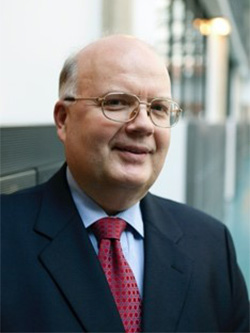
Professor Peter D. Lund
School of Science
Aalto University
peter.lund@aalto.fi
Peter D. Lund is Professor in Engineering Physics and Advanced Energy Systems at Aalto University, Finland. He is Honorary Professor at Southeast University (Nanjing). He has over 40 years of experience in clean energy technologies and systems. He has had visiting positions in China and Germany. He led Finland’s R&D programme on new energy technologies for 10 years. Dr. Lund is active in senior roles with European Union initiatives in energy: he chaired the Advisory Group Energy of European Commission 2002-2006 and the Energy Steering Panel of European Academies Science Advisory Council (EASAC) 2013-2017, Co-Chair of European Academies’ Science to Policy support (SAPEA) on Systemic Approach to the Energy Transition in Europe 2019-2021. He is vice-chair of the Finnish Climate Panel advising Ministries on climate change 2020-2023. He has served in advisory role for many energy programs worldwide and business, incl. the IEA and EIT. He is member of the Finnish Academy Science and Letters and Swedish Engineering Academy in Finland, receiving Honors in Silver. Dr. Lund is Co-Editor-in-Chief for Wiley Interdisciplinary Reviews: Energy and Environment, Editor-in-Chief of Oxford Open Energy and member of several editorial boards. He has given numerous invited talks and co-published over 360 peer-reviewed science papers. He has been internationally awarded, with the prestigious Jiangsu Friendship Award and Medal (2020) and Jinling Award (2016), among others. His doctoral degree is from Helsinki University of Technology (1984); he is a London Business School Alumni (1989).
Title: The global energy challenge and technologies- pathways towards net-zero emission systems.
Abstract: Reaching net-zero emissions by the middle of this century as part of climate mitigation measures will require intensified technology development and massive deployment of clean technologies. Variable renewable power such as wind and solar photovoltaics are expected to grow fast in the coming decades due to favorable economics, which will also enforce using more electricity in the energy transition for decarbonizing other sectors as well. However, this kind of transformation from a fuel-based to a weather-dependent energy system will encompass a range of challenges such as managing supply-demand mismatches and system complexity. Developing climate-neutral fuels such as hydrogen or hydrogen-based synthetic fuels may therefore be of outmost importance to bridge the final step to carbon neutrality. Thus, fuels will be important in the future as well. On long-term, development of improved material systems is highly interesting: Nanostructured multi-functional catalysts and electrochemical reduction/oxidation could open new avenues to produce solar-driven chemicals and fuels from electron and proton catalysis; Semiconductor-ionic materials could enable conversion of fuels to electricity at high power density, among others. On the other hand, some technologies may depend on critical and rare materials, which may hamper their scaling-up. In these cases, alternative technology paths, recycling and circular economy, replacing materials, better energy efficiencies, etc. could be solutions to overcome availability bottle-necks. Also, when approaching carbon neutrality will require stronger focus on carbon sinks, biogenic and technical sinks, such as CCS, as some of the emissions from production, e.g., in some industrial processes and agriculture, are very difficult and costly to eliminate. Finally, a successful energy transition will require strong collaboration across disciplines to enable a just people-centric transition and reach an acceptable future energy system. This requires a systemic approach to the energy transition, which has recently been prepared by the European Academies of Science in their advice to the leaders of the European Commission.